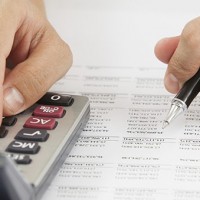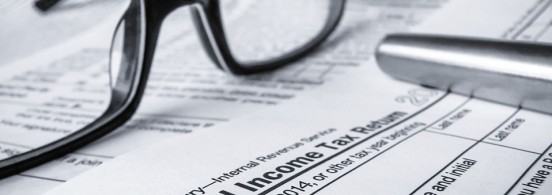Tax Considerations for Working From Home

If you’re an employee with a work-from-home arrangement, how you file your taxes won’t change when you start working remotely. However, if you’re a freelancer, they will. As an independent contractor or freelancer, the government considers you to be self-employed, which means that you are taxed differently than regular employees. The following are some of the key differences in how you should approach your taxes as an independent contractor.
Finding an Accountant
Firstly, finding a good CPA is crucial. While you may see it as a non-essential expense when you’re just starting out, an account will help you to save money in the long run, especially when you don’t know what you’re up against. Accountant’s fees are also deductible as a business expense, so it’s worth the cost. The biggest surprise that you’ll encounter as a freelancer is the employee-employer double tax. When self-employed, the government taxes you as both an employer and an employee. Nearly one-third of what you make will go to paying your taxes and you should set the money aside ahead of time to avoid a problem when tax season rolls around.

Quarterly Payments
In your first year of freelancing, you can wait until the end of the year to file your taxes. The first time you file your taxes as an independent contractor, you will get an estimate of your quarterly payments. Following the first year, freelancers are expected to make payments on the fifteenth of the month in January, April, June, and September. These payments are based on estimates; however, if your estimate is off by a significant amount, you can pay the difference at the next quarter.
Business Expenses
When you are self-employed, you are allowed to claim business and home office expenses. While you may also want to discuss these with a CPA, there are some rule-of-thumbs you can follow in determining what is and isn’t a business expense.
A home office can only be written off if it is used solely for business purposes; for instance, the room can’t also be your bedroom or your child’s playroom. The square footage of your home office may also be used to deduct a proportion of your house-related expenses, including rent, mortgage interest, insurance, and utilities. Supplies including ink, printers, computers, and even expenses related to business travel may also be deducted.
Keeping Records
As a freelancer, you need to be meticulous about keeping records. This is something that most people struggle with when transitioning from being an employee to freelancing. You will be required to show receipts for business expenses that you want to write off. In order to avoid losing these receipts, choose a dedicated file or envelope to keep them in. You may also want to track your household expenses, including rent, utility bills, or mortgage interest, in a spreadsheet. This will make it easier to calculate a total percentage when tax time rolls around. Finally, you’ll need a system for keeping track of your projects, fees, and payments from clients.
